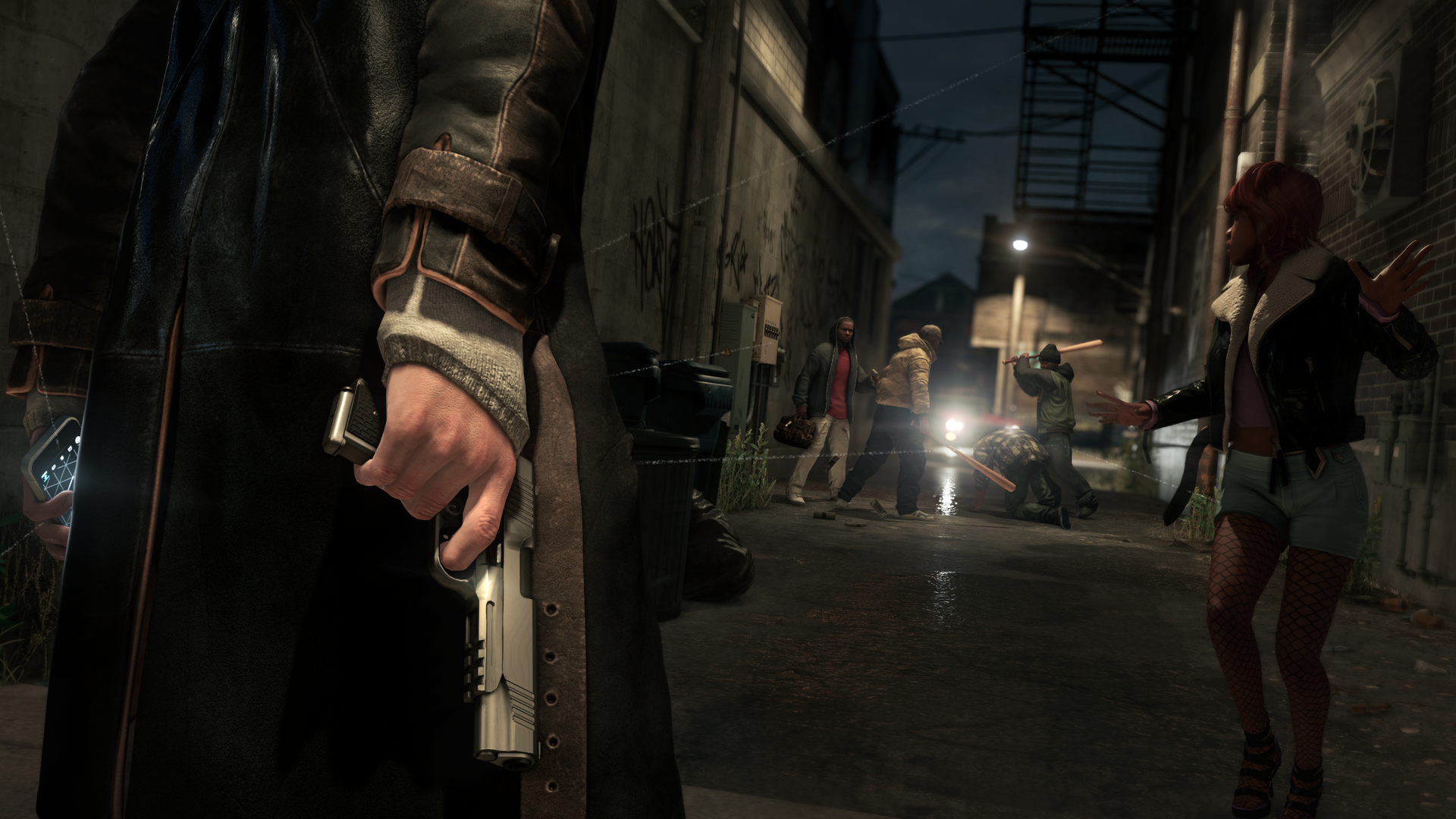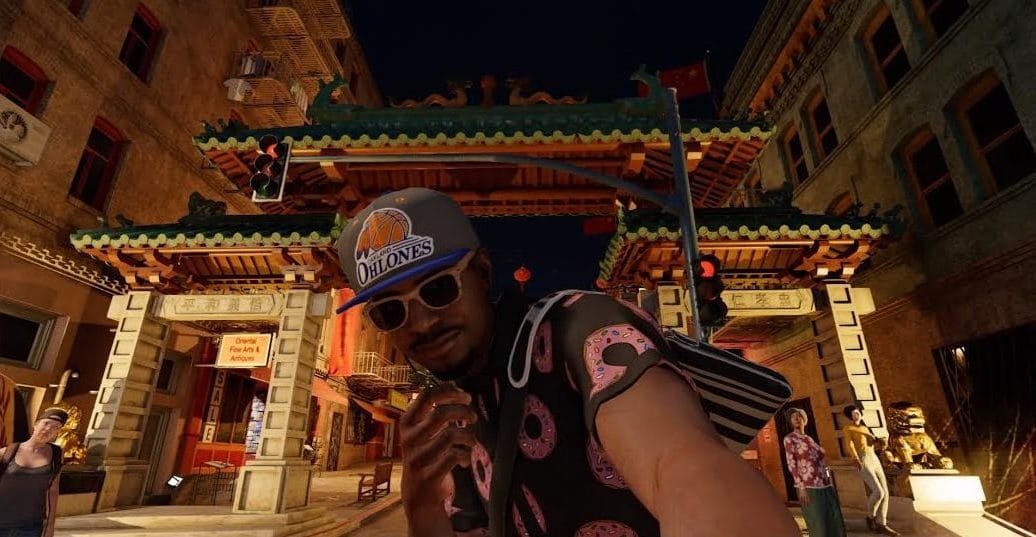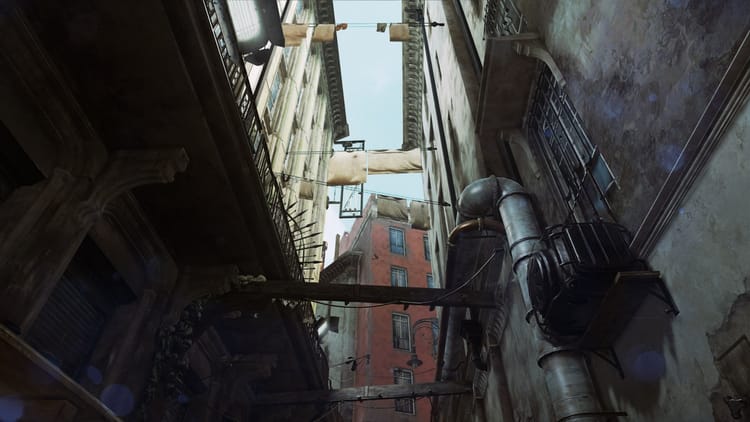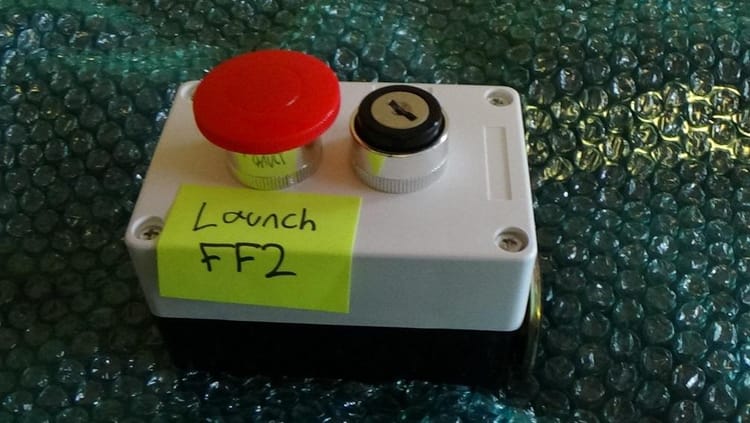Watch Dogs 2 is a love letter to a San Francisco I no longer recognize

I’m playing as Marcus Holloway in Watch Dogs 2, traipsing around a digital recreation of San Francisco. Angry at the system, Marcus has embarked on a romanticized hacking-heavy quest for revenge on nefarious corporations. In Watch Dogs 2, they’re evil personified within the Blume Corporation and ctOS 2.0, the operating system that runs the city.
As Marcus awakens in a hungover daze across the bay in Marin County near the start of the game, he finds himself overlooking San Francisco, no signature Karl The Fog in sight. It’s a beautiful city, if a bit unrealistic. There’s always fog, and maybe two weeks of sunshine a year.
this isn’t the San Francisco I once knew
I direct Marcus to steal a car and drive across the Golden Gate Bridge into that picture-perfect vista. As I roll into the squashed forested area of the Presidio and Golden Gate Park (two woodsy parks conveniently combined for the sake of an open world game), I realize that this isn’t the San Francisco I once knew. And not just because in Ubisoft’s condensed version of the city, the neighborhood I’ve lived in for the past three years literally doesn’t exist.
///
It’s the morning of November 9th and I wake up groggy as usual. It takes a minute to hit me that the Orange Man had been elected as our next President the night prior. After scrolling through the other local results, I felt even more disappointed and angry. Propositions to build desperately needed affordable housing got shut down, and homeless people now live with the worry of having their shelters (tents) being forcibly removed in the streets on the promise to offer them beds in a shelter—an impossible task, considering there are only 35 beds per 100 homeless in the city.
That morning, I realized that I was falling out of love with San Francisco. Maybe for real this time.

But it’s been a long-time coming. In the five years since I officially moved into the city from the East Bay where I grew up, six-figure making technology entrepreneurs have risen up, while seemingly everyone else has been pushed out. This has happened before with the two dot-com booms, except new tech is showing itself to be more persistent—and it has more money. Techies aren’t leaving, and the bubble shows little signs of popping anytime soon in spite of constant predictions, even as San Francisco prepares for the inevitable, eventual fall out.
Yet in the years since moving here, I’ve still seen friends and family members priced out of their homes. I’ve seen entire communities uprooted in favor of overpriced condos. I’ve seen the homeless community continuously ignored and villainized, just for visibly existing. That morning I saw the election results of offices and ballot propositions, and realized that, yeah, apparently the majority of San Franciscan voters don’t care about any of this. On the morning of November 9th, it was hard to face my city again, let alone the world.
///
Marcus is about to infiltrate faux-Google with the help of his friend Horatio, a fellow black hacker who works at the company. As they walk through the pristine tech campus, they note the uncomfortability that comes with being not-white in Silicon Valley. And later, Horatio wrangles with being racially profiled by his own employer (even if said employer alleges he has dirt on him, Marcus wipes it clean). It’s one of the few moments that acknowledges the intersection of race and tech culture and how oppressively white and male it all is, before quickly ushering the storyline into questionable new directions and brushing aside the commentary it brought up in the first place.
the Bay Area’s issues aren’t worthy of dwelling on
This is how Watch Dogs 2 decides the Bay Area’s issues aren’t worthy of dwelling on. There are bigger fish to fry in DedSec’s eyes, like corporations, duh. When Marcus grows angry at the revelation of police targeting lower-income areas because of a “crime-predicting” algorithm, his pals merely bid him to channel his anger into—what else—hacking.
“They’re setting schools, clinics, stores as shoot-on-sight? That’s subsidized housing, I mean those are people who got priced out of San Francisco,” Marcus says. “Where the fuck else are they supposed to go?”

A couple missions later, and everyone—Marcus included—is back to joking around, paying no mind to the terror they just witnessed. It’s a tonal bait and switch that ultimately feels pointless. Watch Dogs 2 is both a chipper game that’s tonally opposite from its predecessor—though still buried in tedious and often hypocritical open world trappings—and a game that’s superficially aware of its troubled surroundings. But it doesn’t commit beyond a piece of on-the-nose street art, an ephemeral quip in a side mission, or a fleeting conversation by one of the city’s few NPCs. Watch Dogs 2 doesn’t get to know San Francisco; it just reminds you that you’re there.
///
Growing up in the Bay Area, I always personally looked up to San Francisco and the surrounding Bay as a unique community, be that because of its tolerance, diverse enclaves, bondage festivals, or even its quintessential hyphy music (something that has always tied my generation together—Mac Dre’s Thizzelle Washington might as well be our unofficial bible, a central beacon of Bay Area togetherness and positivity). But of course the same diversity I see in our community exists in other densely-populated cities. I asked Joseph Amster, board member for the San Francisco History Association, a simple question: what sets San Francisco apart? What makes it different? He told me a story.
In the 1800s, there lived a merchant named Joshua Abraham Norton. Norton was a prominent merchant in San Francisco, until one bad investment (in rice, of all things) left him bankrupt. Ashamed, he left San Francisco, never expected to return. Until one day Norton turned up and declared himself Emperor of the United States—a proclamation that most cities would probably deem insane. But instead, San Francisco found itself embracing his title, and even the faux-currency he used. “He’d walk around in his military uniform, a long blue coat, top hat, decorative feathers, and acted as if he were the Emperor of the United States, and everyone went along with it and treated him like he really were that for the rest of his life, around 21 years,” Amster said. “And that’s very much in the spirit of San Francisco.”
San Francisco’s welcoming attitude is why so many diverse communities flourish here
Amster explained San Francisco’s welcoming attitude is the reason why so many diverse communities have gotten the chance to flourish in this city, from the Hispanic community in the Mission to Italians in North Beach to the LGBTQ+ community in the Castro. Before the tech boom drove so many away due to an upswing in hate crimes and skyrocketing rents, the city itself was once friendly to others. “I think that in most cities in the U.S. people drive, but here we walk a lot more,” Amster said. In a city that’s only 46.9 square miles (compare that to New York City’s 309 square miles), you often find yourself walking more than opting to take a $20 Uber. In situations like that, you meet people naturally. “You interact with your surroundings and other people a lot more [when you’re walking]. It’s certainly in the spirit of tolerance, diversity, the idea of letting somebody be who they are. I don’t see that in other cities.”
I try to follow Amster’s advice as I play Watch Dogs 2. As I walk through the city, I stop when I see a speech bubble floating above a NPC’s head. I engage with them, no matter how bland their words might be. Sometimes they’ll talk about something unrelated to the city, others will randomly explain a pervasive issue, like the reality of gentrification—which always feels out of place, like if I walked up to a stranger in the Mission and said, “So gentrification sucks, huh?”—but most of the time our conversations are forgettable, or lack the punch to feel worthwhile. I wished the game would linger on actual issues or bring them to light more in the core narrative. But it never did. Everything about the Bay Area is relegated, again, to the sidelines.

Watch Dogs 2 keeps with San Francisco’s spirit of acceptance to an extent. Marcus’ central gaggle of hacker buddies—no matter how grating I personally found them to be around—are a community with diverse backgrounds, and they accept and care for one another. Some are well-drawn versions of familiar hacker stereotypes, but others escape being pegged down by a stereotype at all. In Watch Dogs 2’s San Francisco, much like IRL San Francisco, the only caricatures are the tech-entrenched villains.
///
San Francisco itself isn’t above Watch Dogs-y hijinks. Over this year’s Thanksgiving weekend, hackers commandeered over 2,000 computers in the Muni transport system, rendering rides free for a brief time. These hackers aren’t as benevolent as DedSec, though. Instead of exposing Muni’s nefarious ways through a corny viral video, they held up Muni for ransom. 100 Bitcoins in ransom.
There is hope though, beyond ransomware giving commuters free rides and inconveniencing employees in the process—always the victims in the wake of “hacktivism.” In the weeks since the election, at the 16th Street and Mission BART (Bay Area Rapid Transit) station, people began leaving post-it notes of their economic and life anxieties, labeling it as the “Wall of Empathy.” Some wrote notes of hope, some wrote notes of sadness for the future. But all of them, the hundreds that accrued there before a rainy weekend drove them away, shared a sense of community. They shared a love for San Francisco and the people that still reside here or nearby, in spite of all the disconcerting election results: local, statewide, and national. They showed that we’re all here together, and we should stay and fight for what we believe and love. Even if the city and its newfound inhabitants don’t seem to want us anymore.
///
I’ve sunk around 20 hours into Watch Dogs 2 at this point. As a farewell to Marcus, the only person I like in this game, I make a loop around the condensed Bay Area. Through San Francisco, Oakland, San Mateo and the rest of Silicon Valley. I blast Mac Dre, DJ Quik, and that one song with Danny Brown. Beyond Mac Dre, there’s not much hyphy or Bay Area representation here. My hip-hop playlist in-game is a lackluster substitute. As “Get Stupid” plays, I imagine Oakland-raised Marcus would be stoked about one of the Yay Area’s unofficial anthems. But, in another disappointment to confirm what the game misses about the Bay Area, he has no reaction.

It’s a shame. Marcus represents what I still love about the Bay Area and the locals here. He’s enthusiastic, stylish, passionate, artistic, kind-hearted, accepting of all. He’ll go out of his way to help a friend having a panic attack, and he won’t hesitate before gushing about some dorky thing he likes.
It’s just a shame that Watch Dogs 2 never rises to meet him or his city.
///
An aside: Tragically, there was a fire in Oakland in early December at the Ghost Ship warehouse. As of this writing, 36 lives have been claimed, with the death toll still expected to rise. This is painful for the entire Bay Area artist community, especially the artists that have been continuously pushed out of San Francisco and Oakland due to skyrocketing rents and forced to live in unsafe environments like warehouses in order to survive in this community. You can read more about the victims and donate to the Oakland Fire Relief here.



